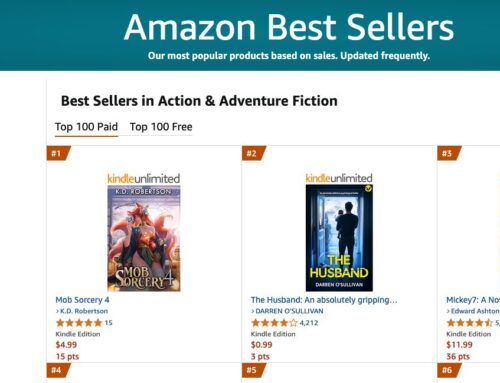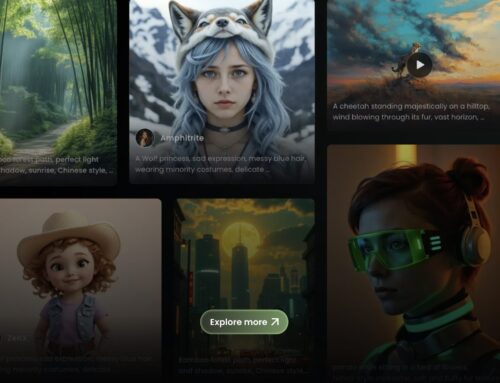 Some people blow through a book in a day or two, while others take a couple of weeks or more. Many people just inhale them like a sweet breeze, one after the other, without stopping in between. I’m worse than that — I just forget the endings of books I enjoy. (Truth is, I don’t even finish books I don’t love.) To most avid readers, books are not only an unquestionable right, but they are taken for granted as a vital component of life.
Some people blow through a book in a day or two, while others take a couple of weeks or more. Many people just inhale them like a sweet breeze, one after the other, without stopping in between. I’m worse than that — I just forget the endings of books I enjoy. (Truth is, I don’t even finish books I don’t love.) To most avid readers, books are not only an unquestionable right, but they are taken for granted as a vital component of life.
It’s like when the tourists cruise through the Sistine Chapel, look up and say, “Look honey, Michelangelo’s painting, now let’s go get some spaghetti.”
But to a writer who may spend a year or more writing the damned thing, think about how we feel when we see a pile of books stacked up 5 feet high against the wall of a summer cabin and the proud readers saying, “We read all of these books this summer!” It’s an intractable dilemma. It’s not easy to write a book, and for some it’s extraordinarily difficult and a compelling feat. So when a reader zooms through it and moves on casually to the next one, how are we to reconcile this disparity?
Think of the planning, outlining, and writing. And writing. And writing. Then the editing, proofing, and rewriting. And rewriting. And editing some more. And then the synopsis. And for some who choose to submit their work for mainstream publishing, the sterilizing and demoralizing query process. Then the rejections. More queries. More rejections. Finally the agent, then the selling to the publisher. The reworking of some parts. The publisher meetings. The marketing meetings. The marketing. For the DIY writers, the layout–the horrible horrible layout process, then the pre-marketing, the blogging, the begging for interviews and reviews, the vetting of e-book/free-book websites, the setting up your website and trying to figure out the e-commerce plugins and CSS and HTML, the tweeting and more tweeting, the artwork, the printer or POD joint, the price gouging, the amazon threads that will make you gouge your eyes out, the paltry and late checks from your method of distribution.
And some asshole reads the thing in a weekend?
There it is, that’s the truth. We are at odds with the very mode of entertainment we choose to pursue. We can’t possibly ask or expect the reader to study and appreciate every word and page as we did; we don’t want them to know how we made the sausages, after all.
This supports my argument that short fiction, novellas, and experimental-length and format fiction should not only have more of a platform, especially with e-books, but that more authors ought to put out more of this type of work. ESPECIALLY with more e-books, because readers will devour even more of our work with this enhanced format, right? RIGHT? So all the better to fill up our tanks not with the predictably dull 80,000 word novels, but with interesting work that we can package with other media to deliver in the increasingly sophisticated (but still clunky) devices for reading.
Get an Editorial Review | Get Amazon Sales & Reviews | Get Edited | Get Beta Readers | Enter the SPR Book Awards | Other Marketing Services






















Yesterday I got a review that was three sentences long on a book blog. I don’t mind a bad review, but condensing 80,000 words and 5 years of work to 3 sentences is sort of offensive.
I don’t mind if people read quickly though. Shows they’re enjoying it.
>>>And some asshole reads the thing in a weekend?
So what? AMC’s awful The Prisoner reboot took like two years from start to airing and I watched it in its alloted time of six hours. Should they have made it two years long?!
Man, I think it’s the highest compliment in the world to be told they inhaled my book. Usually that’s followed up with, “Now I can go back and really dig into the details.”
Whatever. They bought it. They read it. They may have remarked to me or online or in a review.
That’s golden, right there.
I am usually reading several books at a time, so how long it takes to read one book is rather indeterminate. The better the book, the faster I read it and more often I re-read it.
That said, what’s your problem? However much time/effort you spent getting the book done, it doesn’t mean readers owe you squat. Nobody is obligated to buy your book(s) in the first place! Just be glad they’re reading it at all.
Ok, I learned that I really didn’t do a good enough job of getting my point across, underscored in a nasty comment on my own blog where I cross-posted this.
The speed doesn’t matter. That was just a poor analogy. My point is that because of the emergence of e-readers, it should enable authors to release more of their shorter work on an ongoing basis, opening the door to experimental lengths of novellas and other forms. The writing of an 80,000 novel is long and painful. For some authors (me), writing frequently and shorter pieces is more challenging and interesting. It will make the anticlimactic “book release” of an indie book less of an issue.
That’s where I was going with this…
Next time, make the damned point at the START because it got buried beneath everything else.
I don’t think length, per se, should be determinative in any case. You should tell the stories you want to tell. The question is not how long it takes a reader to read your work, the question is how much of an impact it has.
If you’re writing entertainment, then you’re single-handedly creating a few hours of fun for X others. If that X is four people, and it takes them an average of six hours each to read your work, that’s 24 hours of fun you created. On the other hand, if X is four thousand people, that’s 24,000 hours of fun you created.
If you’re writing to ‘say something’, the total hours devoted to reading your work may be the same, and only a few people might really ‘get it’. But what if something you wrote stays with those people 4EV3R? What if it helps someone ‘get’ their own life? That’s pretty rare air, no?
And of course you can aspire to do both. So do both, and let the page count fall where it may.
So glad to hear from you, Mark! You’re such a cheerleader.
I had an amazing email the other day from a dude who read my first book and was really spellbound by my story. So yeah, it’s one dude, but it was profound and yes, that was awesome.
I see my peers who pour so much emotion into the works they write that so few readers–if any–could possibly “get” where they’re coming from. For me, I’m not all that heavy and neither is my work, but I just want other people to enjoy it as much as I do.
I was entirely psyched the other night when I was loading my chapters up onto Feedbooks, I stayed up til 3am re-reading my own book. I just hope others can enjoy it too. But I’m getting off topic.
You should switch to decaf.
I do not understand the beef. You get or make the opportunity to put it out there and the people who read it make what they will of it. Same with movies, same with music, same with sculpture, same with paintings. I make digital art. I have had lots of people visit my web gallery, have received many marvelous comments, and I have never sold a single print, which fact I do not mind in the least. I do the art to take my own breath away.
I have made a good adult living writing forty books and scores of articles and (a very big deal) I still can’t believe people pay me to do what I think I’d do anyway, albeit not so prolifically (because I’d have been at work instead of at play for the past bunch of decades).
I read a couple of books a week. I =stop= reading at least one book a week. When I find a book that moves me or challenges me or penetrates my ennui, I sing its praises to the people I know who will probably enjoy it. I watch a movie almost every evening. I stop watching two or three a week. When I find a movie that moves me . . .
How does the sheer volume of my reading or movie-watching make it hard on the writers or filmmakers? They get the shot to show their wares, to reach me, and I talk them up if they do well enough to in fact reach me.
It’s not that it makes it hard literally for creators of the work that is being enjoyed by the spectator or reader. I am speaking specifically about traditional-length novels and that athe writer may — just MAY — be able to extend that gratification of releasing her work by not holding out for a year or more in the course of developing that long novel. Shorter and experimental pieces lend themselves to the e-reading, anyway, so why not write more often, release it more often, and the writer IS THEREFORE MORE IN SYNC WITH THE READER.
Just maybe.
It’s not clear to me if you’re talking about a stream of unrelated short pieces–short stories and novellas–or serially released portions of a larger work, perhaps parts of a work that never ends (like a really long TV saga).
I suppose you could rope readers into the latter, but it would take some serious explaining and logistics to set it up and keep it going.
There’s also the question of a reader’s keeping his head in the work if it gets too episodic. I, for example, sometimes use the miracle of the DVR to record all the episodes in a series or season I decide I want to watch, or waiting until a whole season’s worth of DVDs is released, then watch it at a rate of two or three per evening over however many days. Ganging episodes in a serial novel would be easy in due course, all to the same effect.
I think I’m talking about any written material that is created by the author for purposes of entertainment which does not necessarily fit in to the traditional formula for a mainstream published novel.
Your points about managing audience interest are absolutely valid. I’ve tried to serialize my novel on my blog posting one chapter a week, which is totally lame, in my estimation. I do the exact same thing with DVR. You cannot expect me to wait a damned week in between episodes. So my experiment in that department failed. Nevertheless, I tried…
Reading speed and writing efforts are not opposites. Writing efforts determine end result quality, as do many other factors. While high quality may promote reading speed, it might just as well make the reader drill deeper into the story. So while I concur that reading something at the speed of light is definitely not a bad thing, I don’t see any direct relation between that and the initial effort.
Many years ago I read Foucault’s Pendulum and really couldn’t get a flow in my reading. Then I restartet the read and this time brought with me a selection of French, Italian and Latin dictionaries. Definitely not a quick read. Immersing myself like this, however, changed the story completely. Did this anecdote relate to this? Probably not :-).
Your anecdote may not have related directly here, but it’s a direction we haven’t explored here since my poorly-communicated message in the post didn’t lend itself to the discussion I had hoped…
If your point was novellas in the ebook format being a viable business model, I agree.
You could never get away with it in traditional format because the lack of thickness would never inspire anyone to pay for it, but if one has an established audience, a buck or two for a 20,000 word novella is definitely something that can (and I think, will) happen.
I’m sure you’re on top of John August’s novella he released to some success on Kindle last year.
Brian, thanks. And yes, I’m watching Augusts’ novella…
Hey look, as long as the work is good, it should be read, in an ideal world. Unfortunately, as I learned today in a heated discussion with an “independent” publisher on Twitter, to some writers, submitting their work to agencies and publishers is the so-called Grail of their existence. So we have to acknowledge that there are readers who feel the same way about the formulas of the work they invest their hard-earned dollars in.
So as experimenters, we have to gauge carefully the audience we are targeting and speak to them, without having the hubris to try and change minds while we’re at it. We might risk losing the lot.
“Think of the planning, outlining, and writing. And writing. And writing. Then the editing, proofing, and rewriting. And rewriting. And editing some more. And then the synopsis. And for some who choose to submit their work for mainstream publishing, the sterilizing and demoralizing query process. Then the rejections. More queries. More rejections. Finally the agent, then the selling to the publisher. The reworking of some parts. The publisher meetings. The marketing meetings. The marketing. For the DIY writers, the layout–the horrible horrible layout process, then the pre-marketing, the blogging, the begging for interviews and reviews, the vetting of e-book/free-book websites, the setting up your website and trying to figure out the e-commerce plugins and CSS and HTML, the tweeting and more tweeting, the artwork, the printer or POD joint, the price gouging, the amazon threads that will make you gouge your eyes out, the paltry and late checks from your method of distribution.”
Wow! You are so right! And I wonder why I keep doing this? Writing is such a lonely task…no wonder so many of the greats drank themselves to death or took their own life.